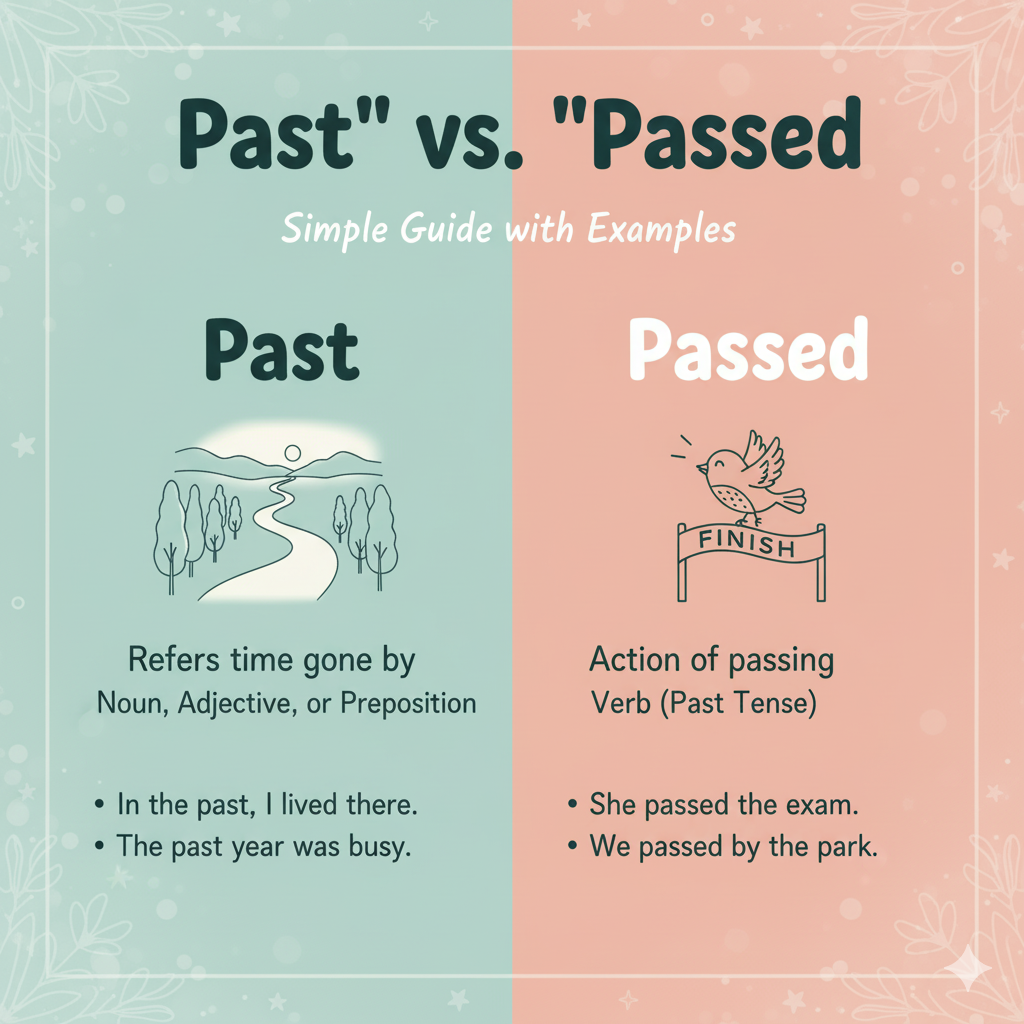Past or Passed? How to Always Get It Right

Have you ever stopped mid-sentence and thought, “Wait… is it past or passed?”
Don’t worry—many English learners (and even native speakers) mix these two up.
That’s why Midoo AI is here to help. Let’s break it down with simple rules and examples so you’ll never be unsure again.
Past – A Noun, Adjective, or Preposition
Past is usually about time or position. It can be a noun, adjective, or preposition, but it never shows an action.
Examples:
- We talked about the past. (noun – time before now)
- She is thinking about her past mistakes. (adjective)
- He walked past the store. (preposition – shows location)
- It’s half past three. (time expression)
- The days of summer are now in the past. (noun)
👉 Tip: If it’s about time or place, use past.
Passed – The Past Tense of “Pass”
Passed is always a verb — the past tense of pass. It shows an action that already happened.
Examples:
- She passed the exam.
- He passed me the ball.
- The car passed by quickly.
- Time passed slowly that day.
- We passed the library on the way home.
👉 Tip: If someone did something (an action), use passed.
Quick Trick to Remember
- Past = time or place (not an action)
- Passed = action (the past tense of pass)
One sentence to compare:
- We passed the park as we walked past the school.
Final Tip from Midoo AI
Here’s an easy way to remember:
- If you can replace it with went by, use passed.
- If you can replace it with before now or beyond, use past.
Keep this trick in mind, and you’ll never confuse them again.
FAQS:
Q1: Is “passed” ever used as a noun?
No. Passed is only a verb form. Past can be a noun.
Q2: Can “past” be used as an adjective?
Yes. Example: “Her past experience helped her.”
Q3: How do I check if “passed” is correct?
Try replacing it with “went by” or “moved by.” If it fits, use passed.
Q4: What’s the most common mistake learners make?
They write past when they mean the action passed.
Q5: Which one is used in “half past five”?
That’s past—because it’s talking about time, not action.